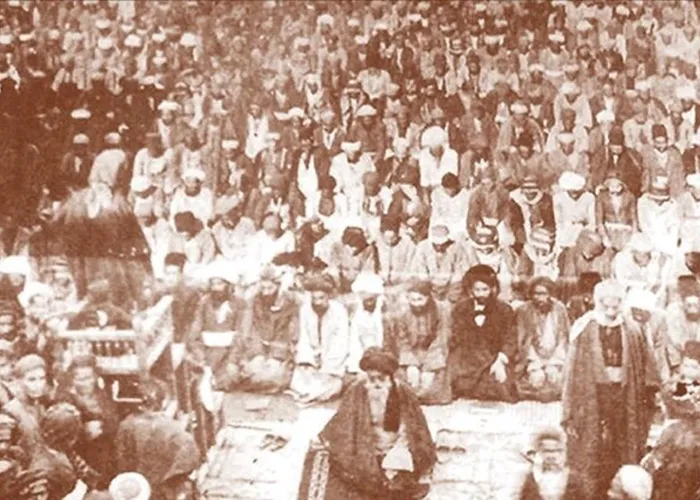Hadith Of The Week – Volume02 Issue44
When Deceit Masquerades as Cleverness: The Message of the Battle of Jamal
Introduction
On the 10th of Jumada al-Awwal, we commemorate the Battle of Jamal as a tragic chapter in early Islamic history. In this confrontation, some companions of the Prophet (peace be upon him), who failed to attain positions of power under the leadership of Imam Ali (peace be upon him), were deceived by their own ambitions and the cunning manipulation of others. Their misjudgement led to bloodshed among believers and a deep moral wound in the nascent Muslim community.
To reflect upon this occasion, we turn to a powerful passage from Sermon 41 of Nahj al-Balāghah, in which Imam Ali (A.S.) condemns deceit and the moral corruption that arises when guile is mistaken for intelligence:
امام علی (ع): وَ لَا يَغْدِرُ مَنْ عَلِمَ كَيْفَ الْمَرْجِعُ. وَلَقَدْ أَصْبَحْنَا فِي زَمَانٍ قَدِ اتَّخَذَ أَكْثَرُ أَهْلِهِ الْغَدْرَ كَيْسًا، وَنَسَبَهُمُ أَهْلُ الْجَهْلِ فِيهِ إِلَى حُسْنِ الْحِيلَةِ. مَا لَهُمْ؟
Imam Ali (as): He who knows the true end (of things) will never betray. We live in an age where most people regard treachery as cleverness, and the ignorant call deceit a form of good strategy. What is wrong with them?” (Nahj al-Balāghah, Sermon 41)
Educational lessons from this hadith for teens and youth
- Think of the End Before You Begin
Before starting anything, imagine its ending. Many actions seem sweet at first but lead to bitter consequences; and sometimes the hardest choices bring lasting peace.
Practical Challenge: When making an important decision this week, pause and ask yourself: “How will I feel about this choice tomorrow or a year from now?”
- Never Use Deception as a Tool
Avoid trickery in all its forms. What seems like cleverness in the moment destroys trust, faith, and self-respect in the long run.
Practical Challenge: If you ever feel tempted to deceive (even in a small matter), stop and replace that thought with an honest alternative – no matter how difficult it feels.
- Honesty is Strength and Brings Peace of Mind
True confidence and peace come from truthfulness, not from pretending or deceiving others.
Practical Challenge: For one week, speak truthfully in all situations, even when it feels uncomfortable. Reflect on how it affects your relationships.
Educational lessons from this hadith for parents
- Model Truthful Behaviour & Encourage Honest Dialogue
Children learn honesty not from advice but from example. Create a home where telling the truth is safe and respected.
Practical Challenge: Be transparent with your children about mistakes and how you correct them.
- Reject “Smart Deceit”
Do not praise manipulation as cleverness in your home.
Practical Challenge: Next time your child uses trickery to achieve something, turn it into a lesson about integrity, not success.
- Teach Moral Consequences
Show that every act of deceit leads to distrust and division.
Practical Challenge: Share a story (from Qur’an or history) showing how betrayal led to loss or regret.
- Link Faith with Everyday Morality
Remind children that faith is not only worship; it’s also truthfulness in action.
Practical Challenge: Connect each act of honesty at home with a verse or hadith to make it spiritually meaningful.
Educational lessons from this hadith for imams and religious leaders
- Educate on Moral Intelligence
Teach your congregation that intelligence without ethics is ignorance.
Practical Challenge: Organise a youth session about the difference between “being smart” and “being right.”
- Foster a Culture of Transparency
A community built on honesty attracts sincerity and trust.
Practical Challenge: Create open Q&A forums where people can voice concerns freely and respectfully.
- Revive Nahj al-Balāghah in Community Life
Imam Ali’s words remain a living guide for ethics and justice.
Practical Challenge: Dedicate a regular “Nahj al-Balāghah Reflection Corner” in the mosque or local media.
news via inbox
Subscribe to the newsletter.




